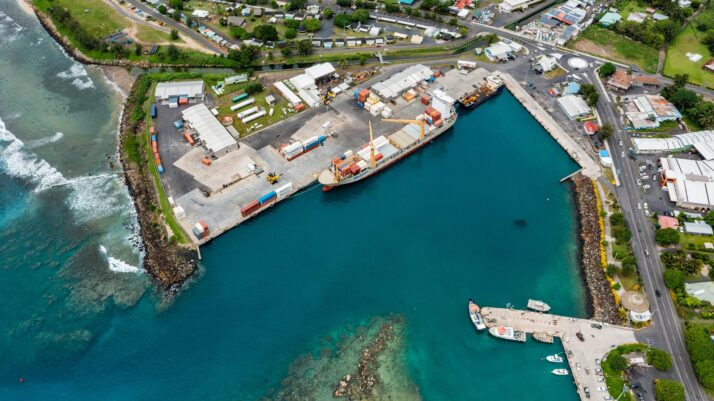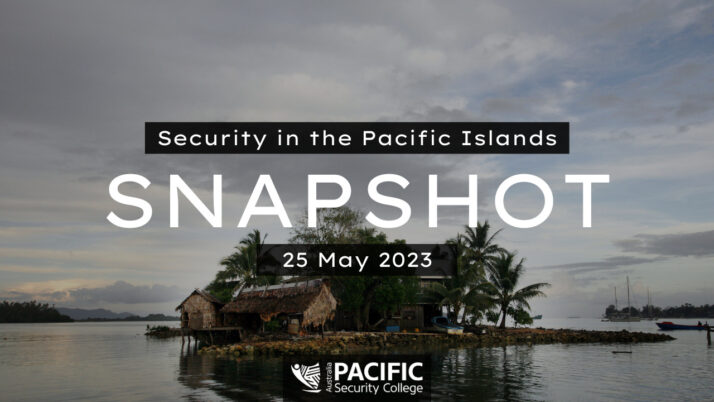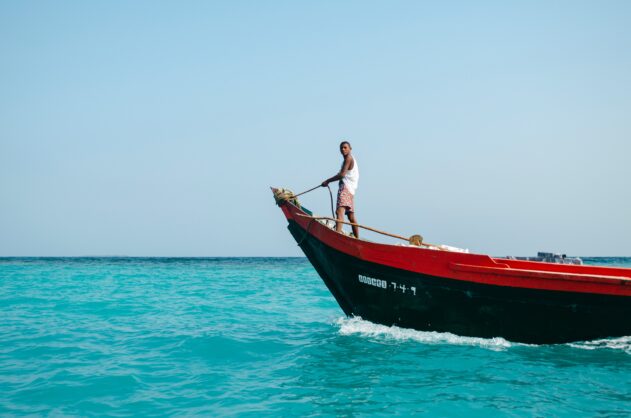Fishing for a future: Transparency challenges in Pacific Island tuna fisheries
Photo by: Miguel Angel Avila
Meg Keen, Quentin Hanich, Grant Walton
In order to improve sustainability and transparency in Pacific fisheries, better information sharing protocols, value chain tracing, and intergovernmental collaboration are needed, Meg Keen, Grant Walton and Quentin Hanich write.
The Pacific islands’ tuna fisheries are some of the richest in the world, supplying about 34 per cent of the global tuna catch. Although the fishery is one of the most sustainably managed, it is under increasing pressures from climate change impacts, transnational crime, corruption and illegal, unregulated and unreported (IUU) fishing. Across the region the toll of IUU fishing is high, with estimates placing economic losses at over US$100 million per annum, potentially undermining resource and income security.
While there are calls for greater transparency in Pacific fisheries to address these challenges, there is still little research on the nature and effectiveness of transparency efforts associated with tuna fisheries, one of the region’s most important industries.
Over the past decade there have been many efforts to improve transparency in the Pacific tuna industry. Tuna-rich countries of the Pacific region monitor fishing efforts via the Vessel Monitoring System (VMS), engage in ocean and aerial surveillance, and provide independent observers on fishing vessels. These policy initiatives have led to significant economic benefits for Pacific island nations with regional revenue from the tuna fisheries increasing at least four-fold in the last decade.
More gains could be made with better data sharing and improved use of modern technology to enhance the monitoring of vessels and supply chains. Ship observers collect valuable data, but often at personal risk and currently they have been temporarily suspended in response to COVID-19. This has created vulnerabilities and data gaps, but also opened up opportunities for investment in other means to collect and share data digitally for improved resource management.
Global partnerships to make better use of satellite tracking technologies, data analysis, and machine learning, could improve oversight through modelling current and likely future behaviour of fishers. This in turn could enhance responses to criminal activities. For now, national initiatives to improve transparency and information sharing, and reduce crime, face significant hurdles. With an area of ocean about the size of Africa, surveillance assets across the region are still inadequate. Even with the recent $2 billion investment by Australia in the Patrol Boat Replacement program, national institutions tasked with monitoring fishing vessels remain stretched; many nations have just one patrol boat.
Regional agencies support national efforts, but vested interests can hamper sustainable management. The Regional Fisheries Surveillance Centre collates and interprets data from nationally collected VMS, but data sharing between countries only occurs by agreement and often is not timely enough to allow action on fishery license breaches or criminal activity.
The Western and Central Pacific Fisheries Commission (WCPFC) promotes transparency through its Rules of Procedure for fisheries management and species’ conservation. Translating rules into action can be hamstrung by conflicting interests between fishing nations and fisheries rich nations. The former head of the Parties to the Nauru Agreement (PNA), Transform Aqorau, has referred to it as the “coalition of the unwilling” with members, at times, more focused on protecting their interests than sustainable fisheries management.
One of the key challenges to achieving greater transparency is the lack of clarity regarding what data should be considered commercially or politically sensitive, and thus subject to restricted public access. There is ongoing research currently examining existing practices in the WCPFC and other regional fisheries organisations that categorise fisheries data. In the absence of any clear protocols, governments usually categorise raw data as confidential.
This results in public scrutiny remain weak with some Pacific scholars lamenting the lack of access to national fishery data, particularly concerning value chains – i.e. fish product, financial and document flows. Questions have been raised about whether such restricted access is consistent with the needs and goals of sustainable fisheries management and seafood traceability.
As the complexity and sophistication of IUU fishing and transnational crime in maritime environments increases, cooperation across agencies, sectors and jurisdictions becomes essential. Security agencies, such as the Regional Fisheries Surveillance Centre, the Oceania Customs Organisation, Pacific Transnational Crime Network, and the Asia Pacific Group on Money Laundering, are particularly important. These agencies all have different, but complementary, data on illegal activities in maritime environments. There are partnership arrangements to share data, but the mechanisms to do so efficiently still need strengthening.
Even when data are available, it is not necessarily used effectively. The lack of transparency, institutional fragmentation and capacity limitations, as well as poorly implemented monitoring requirements can prevent meaningful analysis of existing data. Getting more traction than transgressions will require better value chain information, institutional capacity for data interpretation and rule enforcement, and cross-jurisdictional cooperation. There is also a need for greater engagement by ‘watchdog’ agencies.
Non-government agencies have provided some of the most accessible data analyses. They often reveal where transparency is weak and advocate for improved transparency provisions and practices in the region. Global groups such as Global Fishing Watch are taking action to increase publicly available data on fishing activity by graphically representing vessel movements from satellite tracking, but improved capacity to interpret the data is still required.
Accessible data analyses and critiques of fisheries management issues have been generated by Non-Governmental Organisations (NGOs) including the WWF Communique on Pacific Tuna Fisheries 2018, and the research of the Pew Charitable Trusts. It is an important role, but not a substitute for government and regional organisation oversight and public engagement. NGOs’ long-term funding and commitment can fluctuate thus affecting consistency of effort and depth of analyses.
To encourage greater transparency in Pacific tuna fisheries, high-quality data and public information flows are crucial as they provide a systematic ‘feedback loop’, which can signal the need for adaptation, or indeed transformation. But data alone is not enough. Whether it is used to enhance accountability depends on the data’s accessibility, and how it is presented and interpreted. Currently, governments have few incentives to make data accessible and understandable to the public.
While transparency is not the magic bullet for sustainable fisheries management, it is a key plank to improve ecosystems and economic outcomes.
Read more blogs by Meg Keen here.
More Stories

Blog - 25 Oct 2023
Australia must play a key role in the Pacific’s push to decarbonise shipping
There is an opportunity for Australia to work with Pacific islands to invest in new technology and take a leadership role in the decarbonisation of shipping in the region. Pacific leaders have stated their priority to transition to a fossil fuel free Pacific. Collectively they recently failed at getting the International Maritime Organisation (IMO) to…

Security Snapshot - 26 May 2023
Pacific Security Snapshot | 25 May 2023
The security stories shaping the region ➣ Papua New Guinea and the United States sign Defence Cooperation Agreement ➣ United States-Pacific Islands Forum Dialogue held in Port Moresby ➣ Pacific leaders meet Indian Prime Minister Narendra Modi ➣ Pacific call for climate finance breakthrough at UN session ➣ Tuvalu strengthens efforts against illegal, unreported and…







